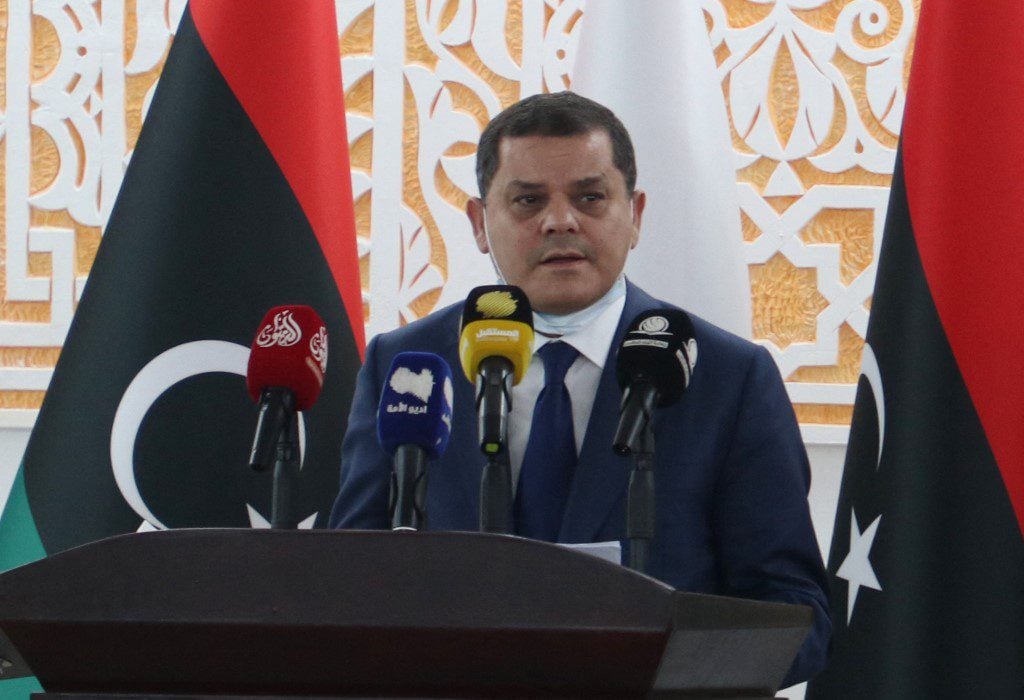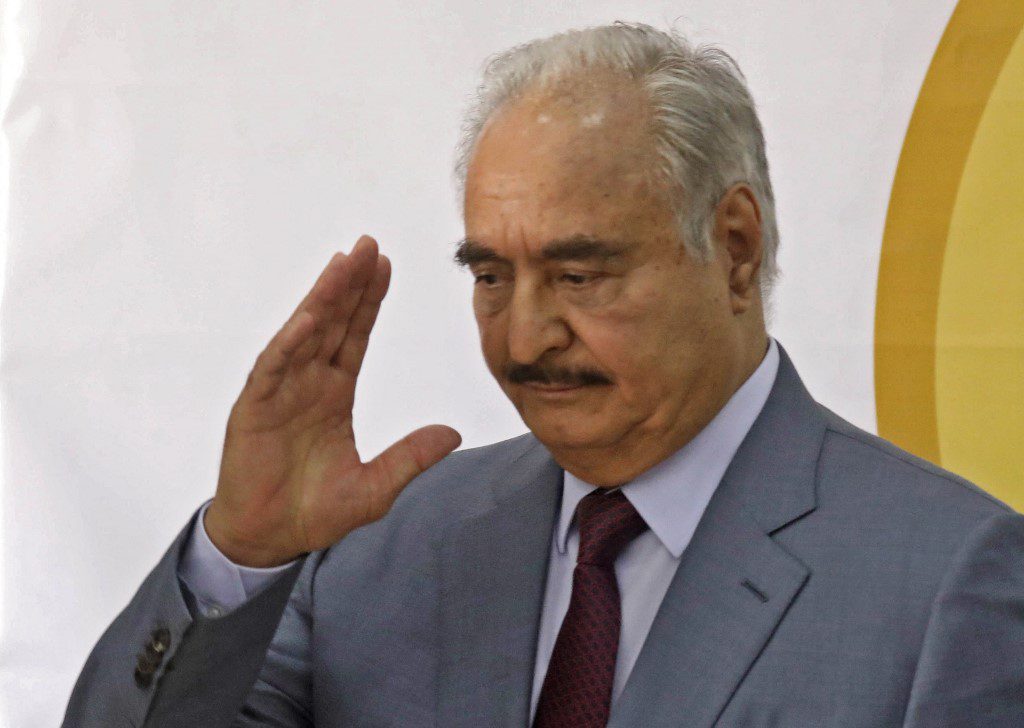
Khaled Mahmoud
Despite the doubts about the possibility of holding these elections, Libya will, for the first time in its history, choose its first president through elections scheduled before the end of December 2021. This event finds a place amidst the constant threats of Turkey and the Muslim Brotherhood.
Also, for the first time in their history, Libyans will be able to go to the polls to elect their next president from several potential candidates.
About ten years after overthrowing the late Colonel Muammar Gaddafi’s regime, the international community succeeded to some extent in stopping the civil war that dominated the military and political scenes in Libya under international, American and Western auspices.
The countries that contributed to overthrowing Gaddafi’s regime in 2011 are now adopting the presidential and parliamentary elections, hoping that this will put an end to an entire decade of chaos that affected the Libyan institutions relentlessly with no exception.
Elections Law
Although the House of Representatives, which is based in Tobruk in the far east of Libya, has issued and agreed on the presidential election law, the Presidential Council headed by Mohamed al-Menfi, hinted at the possibility of announcing its postponement until next March due to the lack of consensual agreement on its laws between the House of Representatives and the High Council of State.
But al-Menfi’s initiative was put down early after controversy, knowing that he had intended to propose it at the Libya Stability Conference held in Tripoli a few weeks ago.
Khaled al-Mishri, head of the High Council of State in Tripoli, tops the list of presidential elections opposition. He submitted an appeal to the Supreme Court of the unconstitutionality of its law, which the House of Representatives approved.
Several other figures and trivial parties in Tripoli submitted similar appeals, while the Supreme Judicial Council, which recently launched specialized committees, is preparing to consider these appeals.
The Road to elections
According to the programme prepared by the High National Election Commission, the door for the presidential elections’ candidacy, which was opened on 7 November 2021, will continue until November 22 and until December 7 for parliamentary elections.
The first round of the presidential elections will take place on December 24, 2021. The second round, which is expected to occur about 52 days later, will coincide with the parliamentary elections in February 2022.
The Commission has allocated only three branches in the capital, Tripoli, Benghazi in the east, and Sabha in the south, to accept applications for the presidential elections’ candidacy. Applications for parliamentary elections candidacy are registered through 25 centres across the country.
The Commission has a team of 26 coordinators to secure the elections in cooperation with the Ministry of Interior, securing the voters’ access to the polling stations. About 2.2 million voter cards have been distributed.
Candidacy requirements
In the search for a future president for Libya, which did not have a president after the murder of Gaddafi and the fall of his regime that ruled the country for nearly 42 years, the Election Commission identified several requirements that should be met by the candidate to run for office. Most notably, the candidate must not younger than 35 years old, be a Muslim, have Muslim parents, hold at least a university degree or equivalent. In addition, the candidate must hold no foreign nationality, and have not been convicted of a felony or a crime against honour or trust.
Suppose it is easy to find a person with these qualities. In that case, it is difficult to think that anyone who does not have political or military experience is capable of leading the country in the post-election stage, especially since the next president will be entrusted with unifying the military institution, ending the presence of armed militias, and ensuring that all foreign forces leave the Libyan territories.
List of Candidates

Abdul Hamid Dbeibeh, president of the unity government, still has not officially announced his candidacy, despite leaks from his aides about his intention to run and assign his deputy to conduct the government’s work temporarily.
Article No. 12 of the presidential election law approved by the House of Representatives impedes Dbeibeh’s candidacy, as it stipulated that the candidates must retire from their official positions three months before the elections.
In compliance with this article, Field Marshal Khalifa Haftar, the strongman in the country’s east, temporarily retired from his position as Commander-in-Chief of the National Army, a step also taken by Aguila Saleh, Speaker of Parliament, who has not decided on his candidacy yet.
Haftar, 77 years old, holds American citizenship and has spent about 25 years in exile in the United States. He is considered the most prominent enemy of Turkey and its allies, especially after the war he led to liberating the capital, Tripoli, in April 2019, and failed after the previous government used its Turkish ally and its affiliated Syrian mercenaries.
Haftar has scored a significant military achievement by eliminating all terrorist groups and extremist organisations in eastern Libya, especially Benghazi and Derna. Also, the National Army forces have control over large areas south of the country.
Fathi Bashagha, Minister of Interior of the former Government of National Accord and one of the leaders of the militias in Misurata in the west of the country, is one of the most potential candidates. He is one of Turkey’s most close allies and is affiliated to a varying degree with the Muslim Brotherhood.
Agha, 58, aka “al-Aglati – the tire man” for his trade-in car tires, played the role of security coordinator with the NATO during the uprising that toppled the Gaddafi regime in 2011.
He lost the nomination for the position of Prime Minister of the Unity Government in the Libyan Political Dialogue Forum, sponsored by the United Nations Support Mission in Geneva last year.
The list also includes Saif al-Islam, the second son of Colonel Gaddafi, who disappeared from the scene after his father was overthrown. He got out with a compassionate release from his prison in the mountainous Zintan, and he did not engage in any apparent political activity over the past ten years. Still, he represents the ambition of old regime advocates.
Several former government officials are among the candidates, most notably Ali Zeidan, the former prime minister who holds German citizenship and recently established a political party in Tripoli, Othman Abdel Jalil, the former Minister of Education, Fathi Bin Shatwan, the former Minister of Industry and Energy, and Mohamed Al-Ghweil, the former Deputy Minister of Planning and the head of an infamous party (Peace and Prosperity), which hails from Misurata. He lost his nomination for prime minister during the forum in Geneva.
The list includes the businessmen Aref Ali Nayed and Ismail al-Shtiwi, who are affiliated with the United Arab Emirates, and Hatem Al-Kour, the local comedian.
Risks and Threats

Monitoring the evolution of electoral risks, the High National Election Commission concluded in a special report that the risk rate is high in the capital, and in the south of the country, compared to other regions.
The risks identified by the Commission include “the presence of armed non-state elements, organised crime groups and human rights violations”.
The internal risk factors are “the disputed election law and the inadequacy of electoral security arrangements”, in addition to what it described as crowds of provocative parties and their violent actions, not to mention the mismanagement of the election results in their rejection and electoral appeals.
It is noteworthy that all those elements that put the possibility of holding free, fair and secure elections in question are present on the ground, at least in western Libya, including the capital.
The UN Support Mission is aware more than others that the elections in Libya are fraught with danger, especially after Khaled al-Mishri, head of the High Council of State, loyal to the transitional authority in the country, and one of the most prominent leaders of the Muslim Brotherhood, threatened to blow up the elections, after he called for besieging the headquarters of the High Election Commission in Tripoli, and incited the people to boycott the elections, in protest of what he described as flawed electoral laws.
Perhaps this is what prompted the coordinator of the UN Mission, Rizdon Zeninga, to inform leaders and representatives of political parties, whom he met in Tripoli on Wednesday evening, that the mission’s priority is to help Libya hold elections that unite Libyans, achieve stability, and produce legitimate institutions acceptable to all Libyans.
It was clear that Zeninga had listened to concerns expressed by the anti-election camp, as the mission statement indicated that some participants in the meeting expressed their concerns about the need for more inclusiveness in the electoral framework and consensus to ensure the acceptance of all of the election results, as well as the need to ensure the security of candidates and voters.
Paris Conference
With the candidacy process for the elections initiated, attention turned to Paris, which hosted an international conference on Libya, the latest of its kind hosted by a Western capital after the recent two Berlin conferences.
Forty-four days before the elections scheduled for next month, French President Emmanuel Macron hosted an international conference on Libya in Paris to give a final “push” to the elections, which are in question despite the regional and international momentum supporting them.
The conference was held under the co-chairmanship of France, Germany, and Italy to ensure the Libyan elections will be held on time and start withdrawing mercenaries and foreign fighters from Libyan territories.
Officials of countries with a direct interest in Libya, such as Egypt, the United States, Tunisia and Algeria, and other countries involved in the Libyan crisis, such as Sudan, Niger and Chad, are participating in the conference.
The Libyan delegation includes the head of the Presidential Council, Mohamed al-Menfi, head of the unity government, Abdul Hamid Dbeibeh. At the same time, Russia was be represented by its Foreign Minister Sergey Lavrov. US Vice President Kamala Harris and Egyptian President Abdel Fattah al-Sisi attend, while Turkey hasn’t announced its representative yet.


